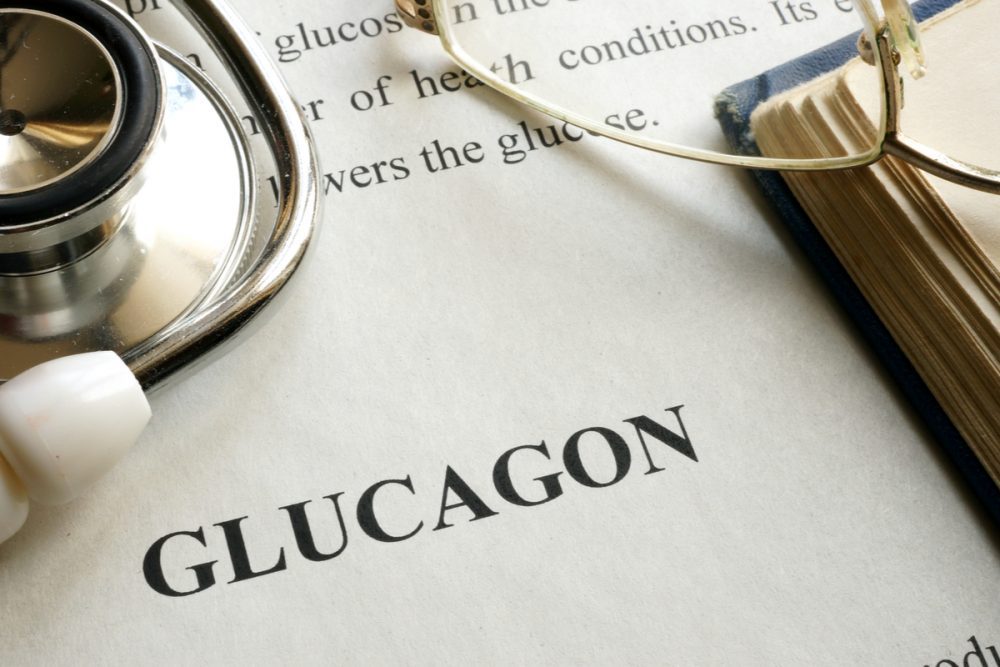What is glucagon?
Glucagon is a counterregulatory hormone that works against the action of insulin. Most people with diabetes know that insulin is secreted by the beta cells of the pancreas. What many don’t know is that other cells in the pancreas called alpha cells secrete the hormone glucagon. Glucagon is one of the counterregulatory hormones that helps the body regulate blood glucose levels.
What does glucagon do?
In people who don’t have diabetes, when blood glucose levels fall, the beta cells secrete less insulin. In addition, the alpha cells secrete more glucagon. Glucagon prods the liver to convert more of its stored glycogen into glucose, which it secretes into the bloodstream, raising blood sugar levels.
People with Type 1 diabetes no longer secrete insulin and therefore cannot change their insulin levels to respond to changes in blood glucose levels. To make matters worse, some of them lose the ability to secrete glucagon in response to low blood sugar, making them especially prone to severe hypoglycemia.
Fortunately, glucagon is available in pharmacies in the form of the Glucagon Emergency Kit, which everyone with Type 1 diabetes ought to have on hand for treating severe hypoglycemia. When people with diabetes are unconscious or too confused to consume a food or drink containing carbohydrate, a friend or family member can inject the glucagon, which can restore the blood glucose level to normal within 5 or 10 minutes.
How to administer glucagon
The kit comes with a syringe containing an inert solution, a vial of crystallized glucagon, and a set of instructions—which potential users should plan to read before the kit is needed. The user injects the solution into the vial, shakes it up to dissolve the glucagon crystals, draws the solution back into the syringe, and injects it under the skin or into a muscle. In some people, glucagon can cause vomiting, so people treated with it should be turned on their side to keep them from inhaling any vomited material.
It is important to realize that glucagon works by making the liver convert more glycogen stores into glucose, so the effectiveness of glucagon injections depends on how much glycogen there is in storage. This means, for instance, that a glucagon injection may be ineffective if given a second time in one day or following a period of prolonged exercise, which would deplete the glycogen stores. It also means that people may still be prone to hypoglycemia for many hours after the glucagon injection. In fact, by some estimates, it takes about 24 hours of normal blood glucose levels to replenish the glycogen stores. For this reason, it is very important to eat something and to monitor blood glucose frequently after an episode of severe hypoglycemia.





